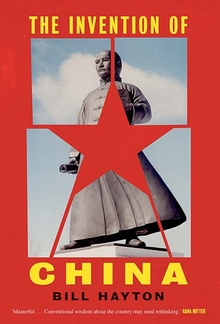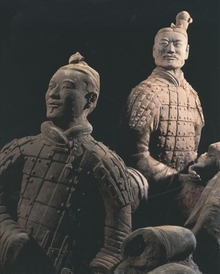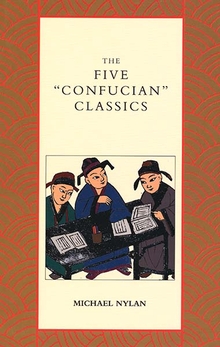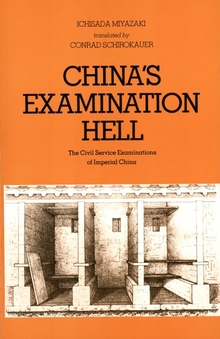The Fragmentation of Afghanistan
WARNING
You are viewing an older version of the Yalebooks website. Please visit out new website with more updated information and a better user experience: https://www.yalebooks.com
State Formation and Collapse in the International System, Second Edition
Barnett R. Rubin
Out of Print
Drawing on two decades of research, Barnett R. Rubin, a leading expert on Afghanistan, provides a fascinating account of the nature of the old regime, the rise and fall of the People’s Democratic Party of Afghanistan, and the troubled Mujahidin resistance. He relates all these phenomena to international actors, showing how the interaction of U.S. policy and Pakistani and Saudi Arabian interests has helped to create the challenges of today. Rubin puts into context the continuing turmoil in Afghanistan and offers readers a coherent historical explanation for the country’s social and political fragmentation.
Praise for the earlier edition:
“This study is theoretically informed, empirically grounded, and gracefully
written. Anyone who wants to understand Afghanistan’s troubled history and the
reasons for its present distress should read this book.”—Foreign Affairs
“This is the book on Afghanistan for the educated public.”—Political Science Quarterly
"Monumental. This is the book we need to put the Afghan revolution and civil war definitively on the cognitive map of the educated public. As a book on a topical and timely subject, it offers a very richly detailed account and is written with great verve."—Said A. Arjomand, State University of New York, Stony Brook
"Barnett Rubin has produced a remarkable and comprehensive examination of the Afghan tragedy. This tightly organized book is the product of a decade of personal involvement and research. Its sources represent all the protagonists and explore a wide spectrum of their impact on Afghan society. Rubin renders a large apparatus into an elegant argument. For students and friends of Afghanistan this book will be indispensable."—Richard S. Newell, Middle East Studies Association Bulletin
"Barnett Rubin's remarkable piece of scholarship, The Fragmentation of Afghanistan, offers something of an approach toward intellectual and historical redemption. Rubin's painstakingly researched narrative establishes with great specificity and consistent balance, the often serpentine course of events in Afghanistan since the Soviet invasion."—Edmund McWilliams, Central Asia Monitor
"Rubin has written a superb book that places Afghanistan in the context of state formation and the effects of the U.S.-Soviet rivalry that added to Afghanistan's misery after 1978. . . . This study is theoretically informed, empirically grounded, and gracefully written. Afghanistan's troubled history and the reasons for its present distress should read this book."—Foreign Affairs
"In this ambitious, comprehensive book Barnett Rubin . . . makes a close study of the modern Afghan state, explaining peculiar features of its development which have served to distort institutions and relations between its tribes and ethnic communities."—Anthony Hyman, Middle East International
"Despite Afghanistan's remote locale and almost proverbial obscurity, its agony deserves to be better known, both as a historical event and as warning, and there is no better place to study it than in Prof. Rubin's splendid account."—Richard W. Bulliet, Southern Asian Institute Newsletter
"This study is theoretically informed, empirically grounded, and gracefully written. Anyone who wants to understand Afghanistan's troubled history and the reasons for its present distress should read this book."—Foreign Affairs
"The study will be of great value to historians of the Cold War, those interested in why states fail, and students of South Asian and Central Asian politics."—Choice
"For the various international organizations and Afghan groups that are trying to reestablish a central government and a sense of unity for Afghanistan, a close reading of The Fragmentation of Afghanistan is essential, for the book provides an in-depth examination and analysis of the existing problems and their origins. For all others, Rubin has uncovered the nature of the Afghan state without contempt, but rather with genuine respect for its people. . . . Belongs in the library of anyone interested in the affairs of Afghanistan."—Amin H. Tarzi, Afghanistan Forum
"Mr. Rubin is excellent in sketching the peculiarities of Afghan history."—Karl E. Meyer, New York Times Book Review
"Rubin's treatment of the shifting alliances and deals made during the 1992 mujahideen takeover of Kabul is the most authoritative to date. . . . [This book] emanates from deep passions, not only for the Afghan people an their tragedy, but for impeccable scholarship and profound concern about the end of an era."—Ahmed Rashid, Far Eastern Economic Review
"[A] meticulously researched study. . . . Rubin has usefully distilled and updated a mass of earlier scholarship and has integrated a wide range of research."—Robert Nichols, Annals of the American Academy of Political and Social Science
"This fine book gives reason to hope that highly qualified scholars drawn to Afghanistan in the wake of the Soviet invasion, Barnett Rubin prominently among them, will carry forward the study of this fascinating, illuminating, ill-fated country."—Marvin G. Weinbaum, International Journal of Middle East Studies
“This revised and updated edition of the original work provides substantial material about the rise of the Taliban to power, and how the latter—a group originating in rural-based madrasas in Afghanistan and neighboring Pakistan that had previously been marginalized as the result of state-building efforts—came to dominate the country and preside over its continued devastation.”—Middle East Journal
“The best single source for understanding the collapse of social order, discipline, mores, and structure in [Afghanistan]. . . . An excellent account of the history of Afghanistan. . . . Rubin’s book provides an excellent indepth [sic] background to the country which will remain a concern for the United States for many years to come. Military professionals will find Rubin’s book indispensable in understanding the political and social realities of contemporary Afghanistan.”—Lester W. Grau, Military Review
Publication Date: January 11, 2002








